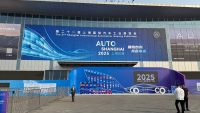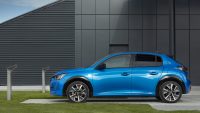Mazda isn’t convinced electric cars are the ‘end point’ and says it hasn’t yet decided which technology to back to propel its vehicles of the future.
The Japanese car firm has been slow to launch a full range of electric cars – it currently has just one in its range – as it believes there are still ‘quite a number’ of barriers to full electrification.
Speaking at last week’s Tokyo Mobility Show, Mazda’s president and CEO of North America, Jeff Guyton, told Car Dealer that customer choice should steer car manufacturers, not government mandates.
He said: ‘There’s economics, there’s infrastructure, there’s raw materials, there’s all kinds of things that say that pure EV might not be an end point for every country.
‘It might be part of the solution. But equally there can be other valid carbon neutral solutions and carbon neutrality is what we’re going for.
‘We sell cars in 150 countries and some countries have said “here’s a mandate”, but customer preferences, in the long run, might dictate where the industry goes.
‘Consumers really decide – governments are trying to regulate things, but the consumers are going to decide eventually, because they’re also voters.’
At the Tokyo show, Mazda unveiled the Iconic SP, widely billed as an electric successor to the MX-5 or RX-7 sportscars.
The Iconic SP concept features the electric-rotary system currently found on the MX-30 R-EV crossover. It has a rotary petrol engine that is used as a generator for the electric motor and batteries, rather than driving the wheels.

Guyton said Mazda was continue to back ‘multiple solutions’ for propulsion for its cars and engineers should be free of constraints to come up with their own ideas.
‘We’re asking engineers to do the wrong thing,’ he said.
‘We’re asking them to make EVs, but if we charge them with a dirty grid, what’s the benefit of that?
‘We should ask them to deliver a carbon neutral solution measured on a lifecycle basis or a well to wheel basis, and let them go. That actually points at a solution for the environment.
‘At the moment we’re investing all this energy and passion in making an EV that’s charged by oil or coal.’
Mazda sells just one electric car in the UK – the MX-30 – which has a range of just 124 miles. It will soon be joined by the range extender version, technically classed as a hybrid, which was launched to the press last week.
The Iconic SP, explained Guyton, shows the future for the brand could encompass the rotary engine and that Mazda hadn’t yet made up its mind as to which fuel to back.

He explained: ‘It will depend on the market, on customer needs, on budget and a variety of other factors. The thing that we are keen to do is reduce, or eliminate, the carbon footprint.
‘So what you see in Iconic SP is us using one of the particular strengths of the rotary, because we demonstrated hydrogen, and we’ve demonstrated biofuel with it, and so forth.
‘The rotary is actually quite a nice device for making power from different fuels. It’s not that picky about what it burns, and it’s not that hard to adjust it to burn, for example, hydrogen.’
At an event held on the eve of the Tokyo show, BMW revealed its plans for hydrogen cars, detailing its aim to launch production cars by 2030.
The German firm has partnered with Toyota to develop the technology, but warned the UK is in danger of lagging behind.
































